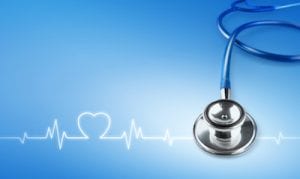Exactly what does Andropause have to do with Cardiovascular Disease?
Unfortunately, there is no clear-cut answer to that question as of right. However, it appears that medical experts are getting closer to finding an indisputable connection between cardiovascular disease and andropause. For example, representatives of the National Center for Biotechnology Information assert that diseases such as congestive heart failure may be representative of cellular deterioration. This, they suggest, is the result of telomere shrinkage, which leads to cell death. In other words, as the body ages, its cells age as well.
What is Andropause?
The word andropause means “male pause” in Greek and is used to describe what is referred to as male menopause.
Just as studies have shown that women’s estrogen levels decline sharply with the onset of middle age and menopause, data suggest that men’s androgen and testosterone levels deteriorate quickly during this phase of their lives, as well. Subsequently, they may experience a reduction in strength, energy, and sex drive..
How do Aging Cells Affect the Heart?
Let’s start with telomeres. Telomeres are the tips, so to speak, of our respective 23 pairs of chromosomes—the molecules within our cells that make us unique and reveal information about our genetic background.
Androgens are hormones that are sometimes referred to as “male” hormones that play an important role in male traits and reproductive activity. George Washington University asserts that while women don’t have as many androgens as men, their bodies do produce them, and those androgens are typically “converted into the female hormones called estrogens.”
Hormones, in general, serve as “chemical messengers,” according to representatives of the University of Colorado’s Biomedical Sciences department. Our cells disburse these messengers that have a direct impact on how other cells function within our bodies via our blood and extracellular fluid.
Associates of the National Center for Biotechnology Information suggest andropause symptoms include, but are not limited to, fertility issues, the loss or thinning of facial and body hair, increased body fat, decreased muscle mass, changes in genital size—in particular, the testicles—and the onset of osteoporosis.
What this Means for Cardiac Health

Once telomeres begin to shrink, apoptosis or cell death is inevitable because the chromosome can no longer be replicated.
Cell death leads to tissue death, and organs are made of tissue. Therefore, when tissue begins to die, so do organs.
Exactly how can the Adverse Effects of Andropause be Delayed or Prevented?
Unfortunately, there is no definitive answer to that question because medical experts are still learning about andropause. However, hormone replacement therapy appears to be helpful.
Hormone replacement therapy has long been used by post-menopausal women to lessen the side effects of menopause and prevent adverse health conditions associated with menopause. For example, Mayo Clinic associates suggest post-menopausal women who do not use hormone replacement therapy are more likely to develop “osteoporosis, heart disease, Parkinson’s-like symptoms (parkinsonism), anxiety or depression.”
Research suggests middle age or andropausal men also benefit from hormone replacement therapy. For instance, representatives of the National Center for Biotechnology Information assert that decreased testosterone levels typically increase a man’s chances of developing coronary artery disease. However, they suggest that andropausal men who use hormone replacement therapy—specifically, androgen replacement therapy—while under the supervision of their health care provider may experience fewer side effects and possible preservation of their cardiovascular health as they get older.
Final Thoughts
Again, there is still a lot to know about how decreased androgen levels and andropause in general may affect an individual’s cardiovascular health. Medical experts are still debating data that suggest there is a direct connection between these health issues. However, current research has helped health specialists get closer to finding irrefutable proof.





